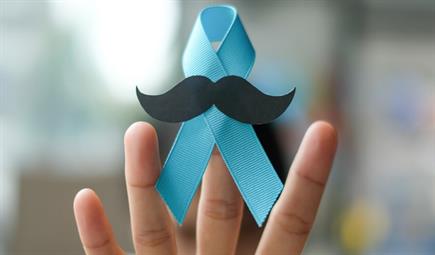Our Doctors
Meet all the doctors from Cleveland Clinic Abu Dhabi.
View Doctors
All you need to know about the cancer that men don’t like to talk about.

Testicular cancer is the most common cancer among younger men – but they really don’t like to talk about it. Here, we take a look at the basics that all men should know.
What is Testicular Cancer?
Testicular cancer develops when cancerous cells grow in the testicle. These cells grow out of control and form a tumor. There are two types of testicular cancer:
Who is at Risk of Testicular Cancer?
There are several risk factors that might increase your chance of developing testicular cancer:
What are the Signs and Symptoms of Testicular Cancer?
Being aware of the signs and symptoms of testicular cancer is very important as, if caught and treated early, the disease has a very good cure rate. Symptoms can include:
If you notice of these symptoms, always MENtion It to your doctor. They could be a sign of another less serious condition but should always be checked out by a healthcare professional to rule out testicular cancer.
Should I Attend Screening for Testicular Cancer?
Testicular Cancer isn’t screened for routinely, but men should examine their testicles every month for any lumps or changes in the way they look or feel. Always discuss anything unusual with your doctor. You should also let your doctor know if you have a family history of testicular cancer.
How is Testicular Cancer Diagnosed?
If your doctor suspects testicular cancer, they will perform a physical exam and number of tests, which might include blood tests, ultrasound or other imaging tests such as a CT, MRI or PET scan.
If the imaging tests indicate cancer, a biopsy may be performed which removes the affected testicle so that it can be examined for cancer cells.
If testicular cancer is diagnosed, treatment will depend on the type of testicular cancer you have and a number of other factors.
Removing the cancerous testicle is the most common treatment for testicular cancer. The lymph nodes may also be removed. Radiation therapy and chemotherapy may also be given, to prevent the cancer from returning or to treat cancer that has returned.
Can Testicular Cancer be Prevented?
You can’t prevent testicular cancer, but by being aware of any changes in your testicles and performing regular self-examinations, you have the best chance of catching it early.
Remember, testicular cancer has a high cure rate, particularly if caught and treated early. If you notice anything different, always MENtion It to your doctor right away.
.png)
Prostate cancer is a common cancer among men in the UAE. With no symptoms in the earliest stages...
Read Articles
Prostate Cancer Myth Busting: Prostate cancer is the second most common cancer diagnosed in men...
Read Articles.png)
An enlarged prostate can cause a change in bathroom habits. It needs to be checked out by a doctor...
Read Articles